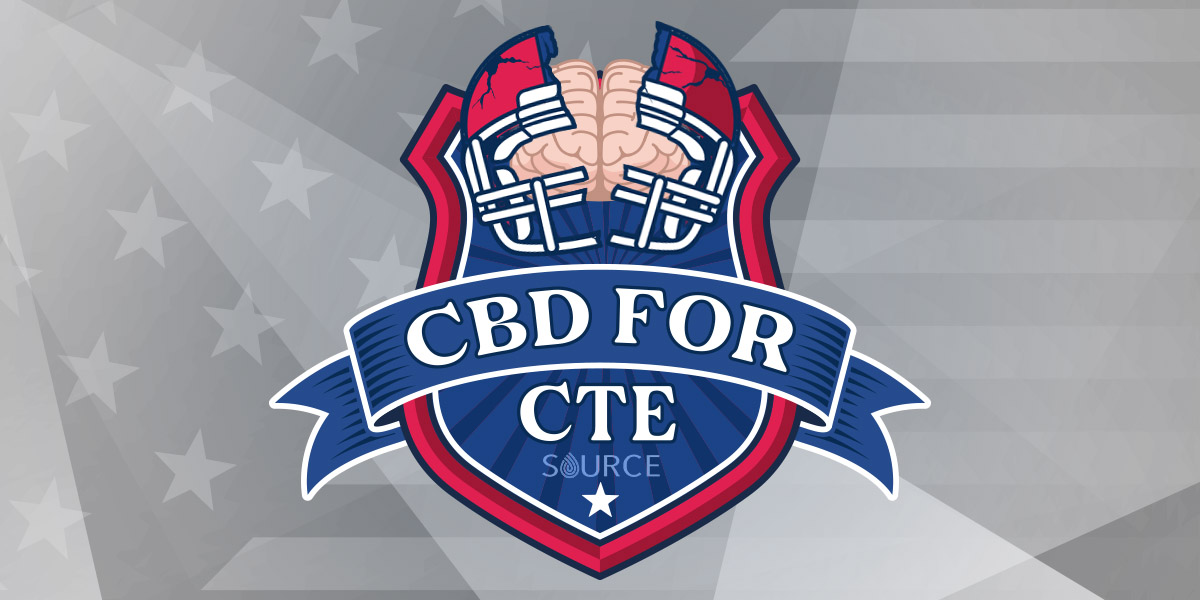CBD Oil for Health
Sports Recovery of the Future: CBD for CTE & Concussions
February is CTE month, and that means there’s a focus on raising awareness about this often debilitating disease.
Since our attention is always focused on CBD, we were interested in the role this compound plays, if any, in the management of this condition. We’re also big sports fans, and know that recovery after any injury, or even just intense training, can be tough. We wanted to know if CBD can play a role in that recovery, so we dug into the research.
So, what is CTE, what causes it, and can CBD for CTE help?
What is CTE?
CTE stands for Chronic Traumatic Encephalopathy. It’s a degenerative brain disease most likely resulting from repetitive brain trauma. Rather than just a few concussions though, most people diagnosed with CTE have suffered hundreds of head injuries over the course of many years. And it’s not just concussions, but rather sub-concussive impacts – hits to the head that don’t cause full-blown concussions.
CTE is most often found in athletes, particularly those playing full contact sports like football or boxing. It’s also been found in military personnel who’ve sustained injuries to the head.
With the repeated trauma, the tissue in the brain breaks down. The repeated brain trauma triggers progressive degeneration of the brain tissue, including the build-up of a protein called Tau. Tau forms clumps in the brain that slowly spread, killing brain cells.
Common symptoms of CTE include:
- Memory loss
- Impulse control problems
- Headaches
- Confusion/difficulty concentrating
- Impaired judgment
- Aggression
- Depression and suicidal thoughts
- Parkinson’s disease
- Dementia
These changes in the brain have been seen in people as young as 17, but they typically don’t show up for years.
Unfortunately, as of right now, doctors can only diagnose CTE after death through an analysis of the brain tissue. Doctors slice the brain tissue and use special chemicals to make the clumps of Tau visible. Take a look at the difference between a health brain and CTE brain:

CBD for CTE
Is CBD a viable treatment for CTE? Unfortunately, because it can only be diagnosed after death, there’s really no way to tell. It also means that the research looking specifically at CBD for CTE just isn’t there.
Research does show that CBD “inhibits hyperphosphorylation of tau protein in Abeta-stimulated PC12 neuronal cells.” Or, simply put, it helps stop that Tau build up that’s so problematic in a CTE brain. So that’s a very good thing.
Additionally, there’s a lot of research that suggests it may be helpful for many of the common symptoms of CTE.
Depression
Research has found that CBD’s effect on receptors in the brain produced both anti-depressant and anti-anxiety effects. Additionally, it has been shown that CBD works faster than pharmaceutical anti-depressants.
Headaches
There is substantial research on the effectiveness of CBD for pain relief. While more has been done specifically on cannabis as a whole (both THC and CBD) for headaches/migraines, the anti-inflammatory properties make it important to consider CBD for headache relief.
Dementia
There are some studies that suggest CBD may help manage a few behavioral symptoms of dementia, such as agitation and aggression. There is also significant anecdotal evidence of health practitioners using CBD to treat dementia.
Parkinson’s
An important 2006 study notes that “our results indicate that those cannabinoids having antioxidant cannabinoid receptor-independent properties provide neuroprotection against the progressive degeneration of nigrostriatal dopaminergic neurons occurring in PD.” A 2019 review in which researchers analyzed various studies also suggests that CBD has a neuroprotective effect on Parkinson’s disease patients.
CBD for General Brain Health & Recovery
While we can’t say for sure whether CBD helps for CTE specifically, we do know that it is useful for brain health, and overall health in general. That includes recovery after a concussion and just general physical recovery.
Basically, CBD communicates with your body’s main command center to keep things balanced. This includes protecting and healing the brain through cell support, which is ideal during recovery with concussions.
As a neuroprotectant, CBD helps reduce damage to the brain and nervous system and encourages the growth and development of new neurons. According to research, “CBD decreases the production of inflammatory cytokines, influences microglial cells to return to a ramified state, preserves cerebral circulation during ischemic events, and reduces vascular changes and neuroinflammation.”
As an antioxidant, it can also protect the brain from oxidative damage caused by things like stress and injury. In fact, research shows that it’s even more effective than vitamin C and E as a neuroprotective antioxidant. An imbalance of free radicals causes damage to fatty tissue, DNA, and proteins in your body, damaging structures inside brain cells and even causing cell death. The brain is particularly vulnerable to oxidative stress because brain cells require a lot of oxygen.
And because it’s an anti inflammatory, it can help in so many ways for general physical recovery, especially for those who play sports.
Will CBD for CTE Help?
As of right now, we can’t say for certain what the overall impacts of CBD for CTE might be. While we do know that CBD is a very valuable tool for some of the symptoms, and for general recovery and cell support, we can’t say for sure what it might do to relieve or reverse the damage already done to the brain.
Hopefully, with more research into this often debilitating disease, we will soon know more and be able to look into the viability of using CBD as a natural treatment method for patients suffering from CTE.

